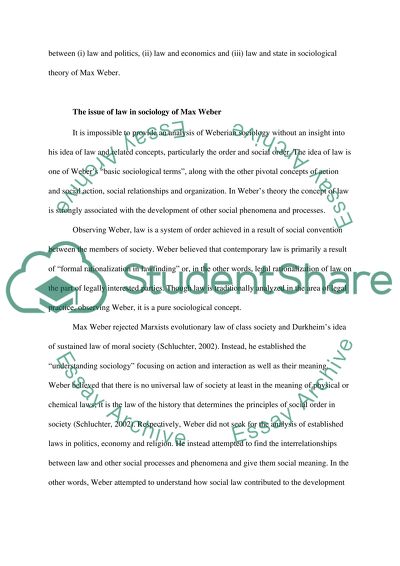Cite this document
(“Relationships between Law and Politics, Law and Economics and Law and Essay”, n.d.)
Relationships between Law and Politics, Law and Economics and Law and Essay. Retrieved from https://studentshare.org/sociology/1535582-relationships-between-law-and-politics-law-and-economics-and-law-and-the-state-in-sociology-of-max-weber
Relationships between Law and Politics, Law and Economics and Law and Essay. Retrieved from https://studentshare.org/sociology/1535582-relationships-between-law-and-politics-law-and-economics-and-law-and-the-state-in-sociology-of-max-weber
(Relationships Between Law and Politics, Law and Economics and Law and Essay)
Relationships Between Law and Politics, Law and Economics and Law and Essay. https://studentshare.org/sociology/1535582-relationships-between-law-and-politics-law-and-economics-and-law-and-the-state-in-sociology-of-max-weber.
Relationships Between Law and Politics, Law and Economics and Law and Essay. https://studentshare.org/sociology/1535582-relationships-between-law-and-politics-law-and-economics-and-law-and-the-state-in-sociology-of-max-weber.
“Relationships Between Law and Politics, Law and Economics and Law and Essay”, n.d. https://studentshare.org/sociology/1535582-relationships-between-law-and-politics-law-and-economics-and-law-and-the-state-in-sociology-of-max-weber.


